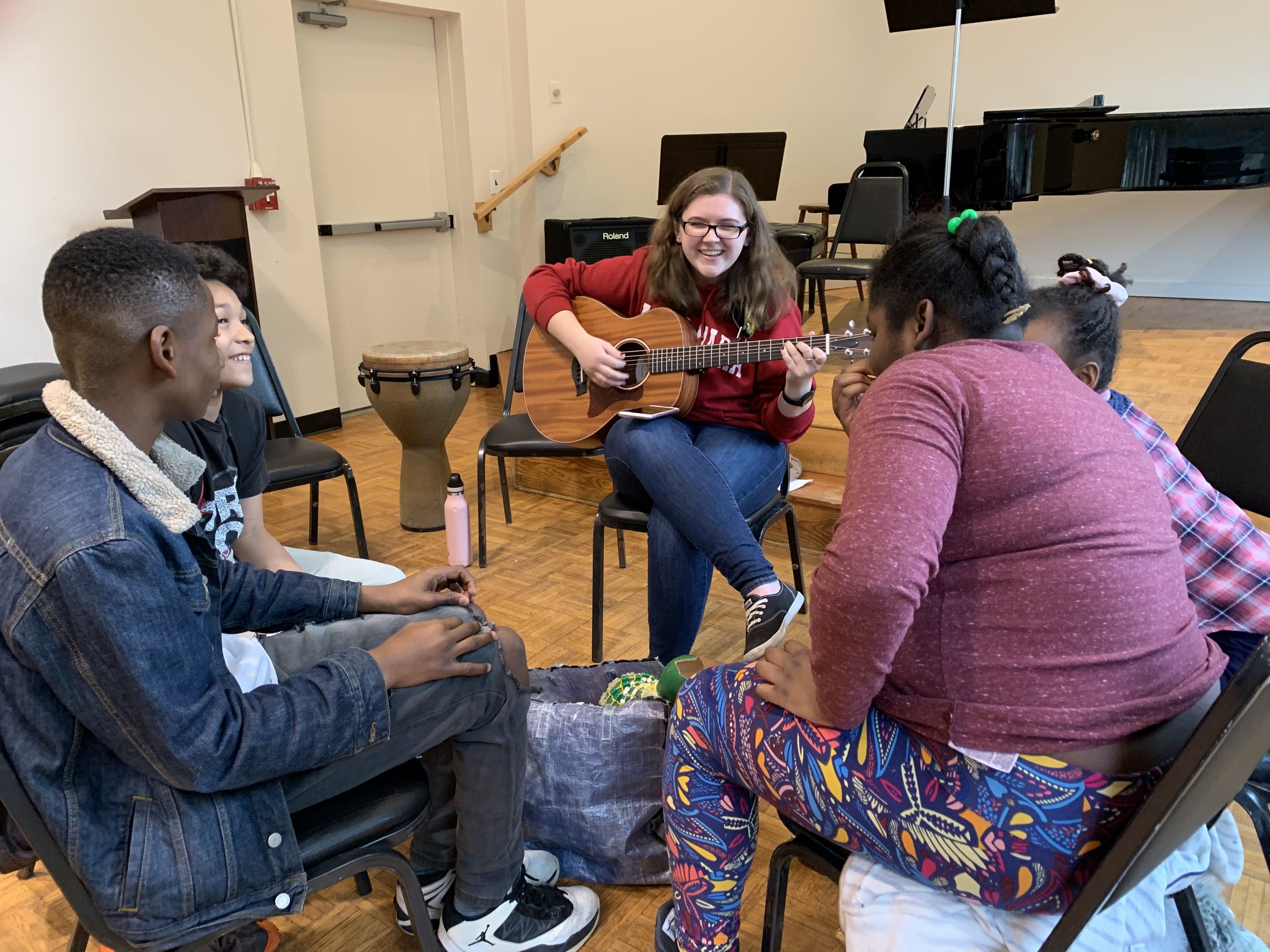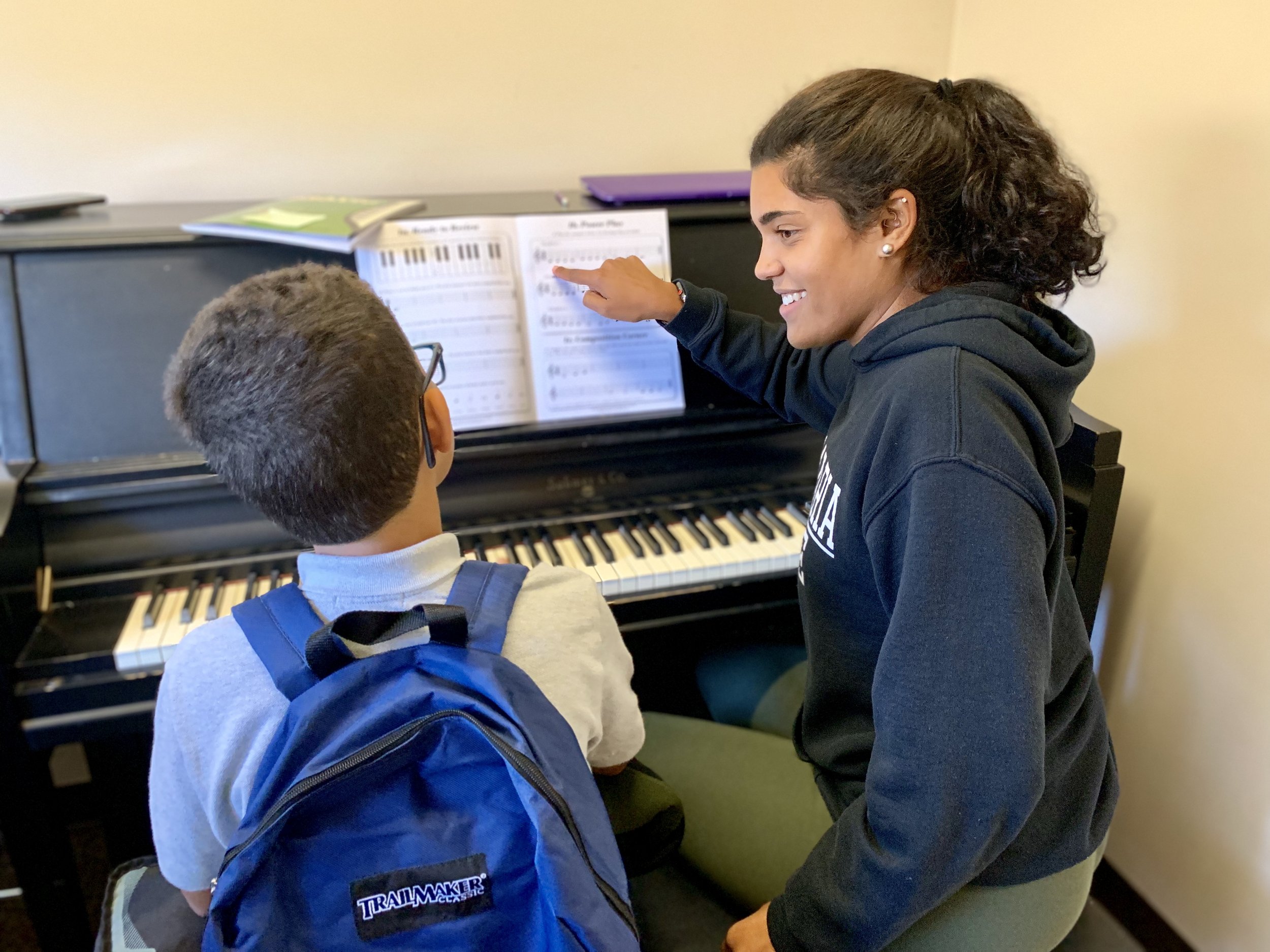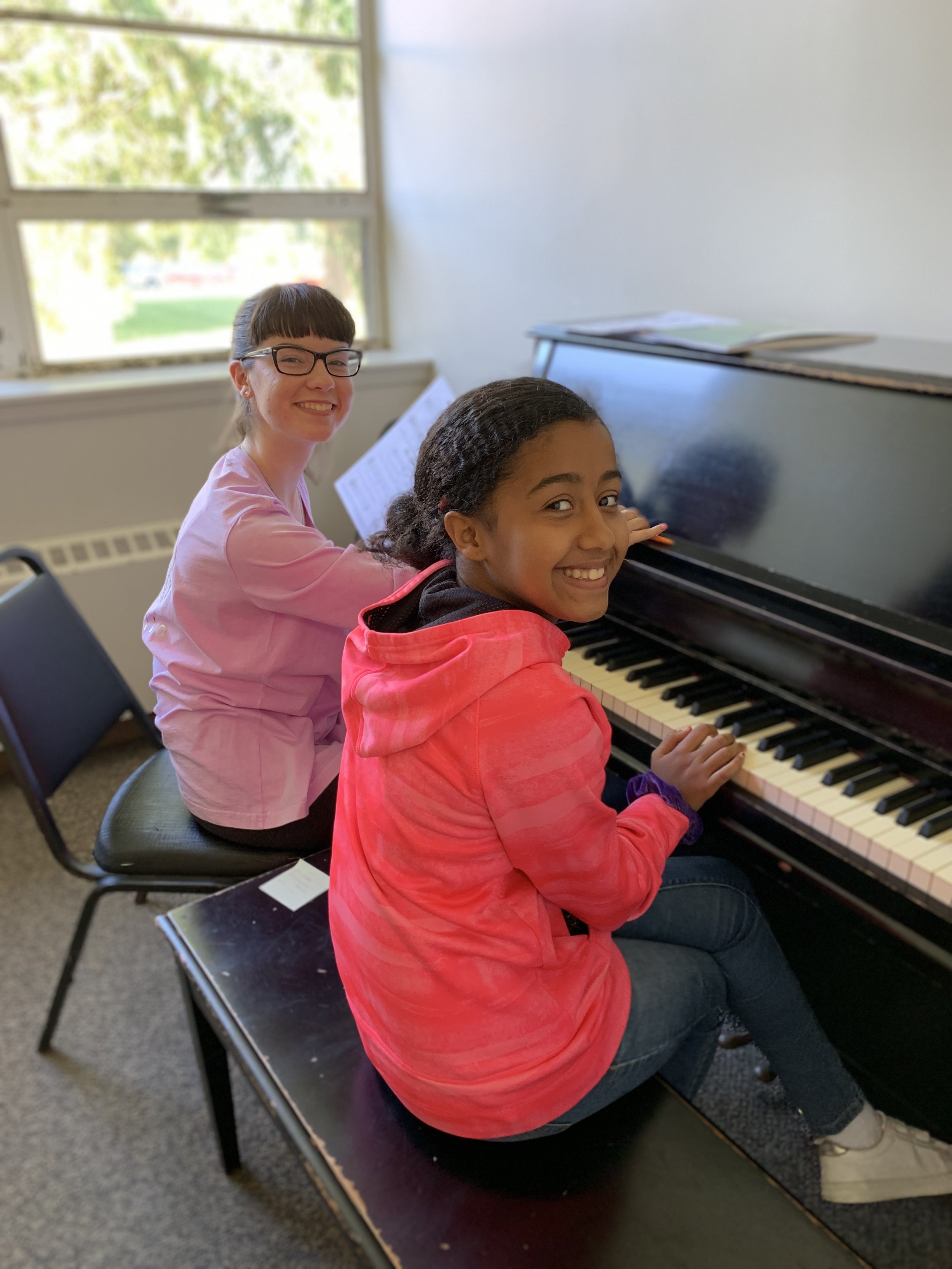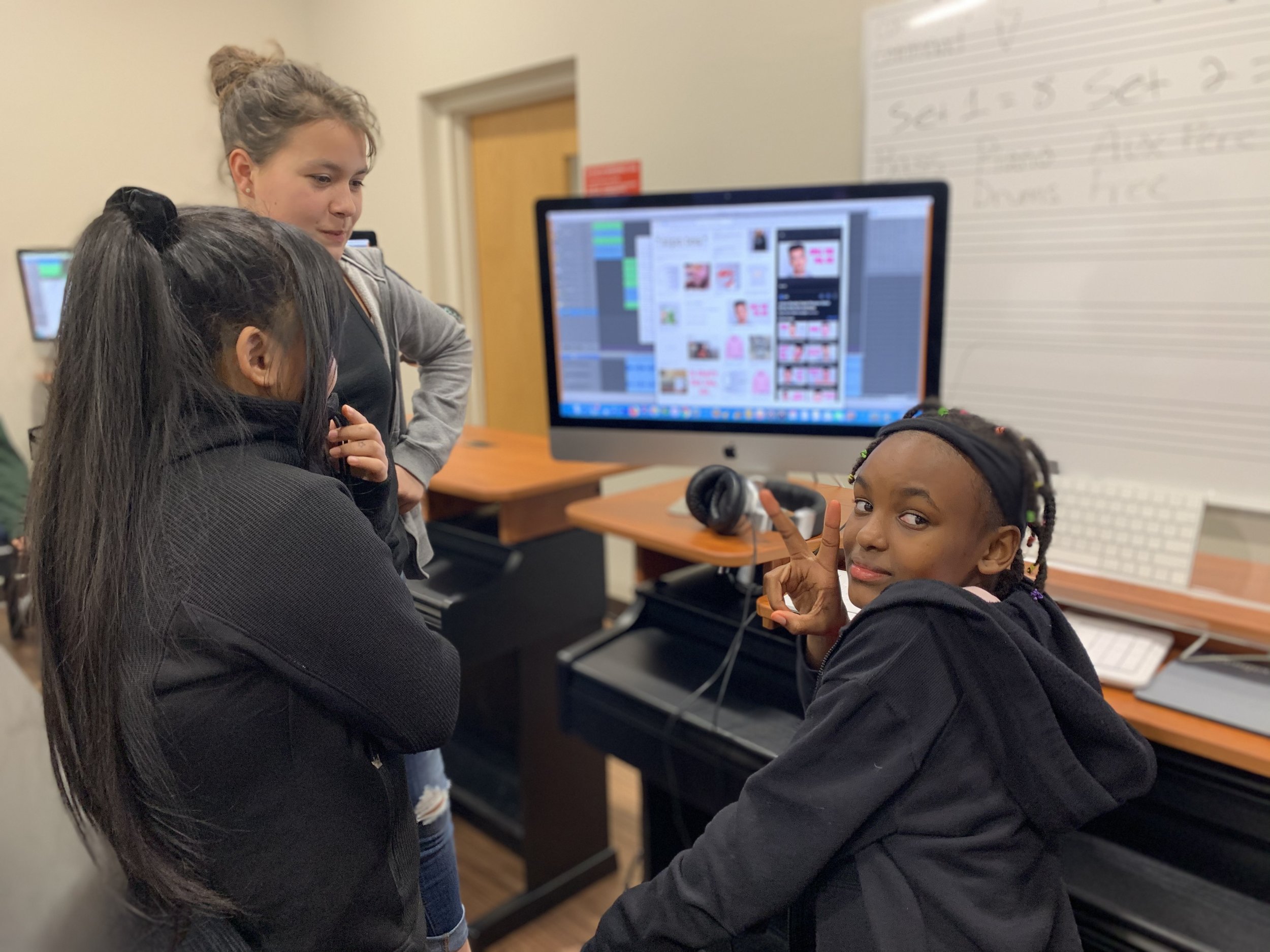Higher Education
A primary goal of OpporTUNEity is to bring music learning opportunities to children in underserved communities, where resources are limited and poverty is high, while engaging undergraduate students in life-changing and career defining teaching experiences.
Within the scope of a K-16 framework, this is done by aligning the program with the mission and vision of colleges and universities, utilizing the resources of these institutions while engaging college undergraduate music majors through teaching opportunities in the community. To these ends, we measure our impact through targeted music engagement, civic learning, and career readiness outcomes.
Partnering Instutions
Past & Present
College of the Holy Cross
clark university (LARC Program)
Anna Maria College
Martin Methodist college (UT Southern)
established
March, 2025
march, 2024
june, 2017
may, 2013
Team
Melissa Martiros
Higher Education Objectives
1. MUSIC ENGAGEMENT. Strengthen engagement and capacities of future music educators, music performers, and music therapists by using innovative, arts-based teaching and learning strategies with elementary, middle and high school students and incarcerated adults in our partnering facilities.
2. CIVIC LEARNING. Utilize music as an educational tool for improving and building civic understanding and social justice in the classroom and private lesson settings, and throughout the undergraduate experience.
3. CAREER READINESS. Develop career readiness skills, through community engagement and service, as participants become successful and innovative music professionals.



